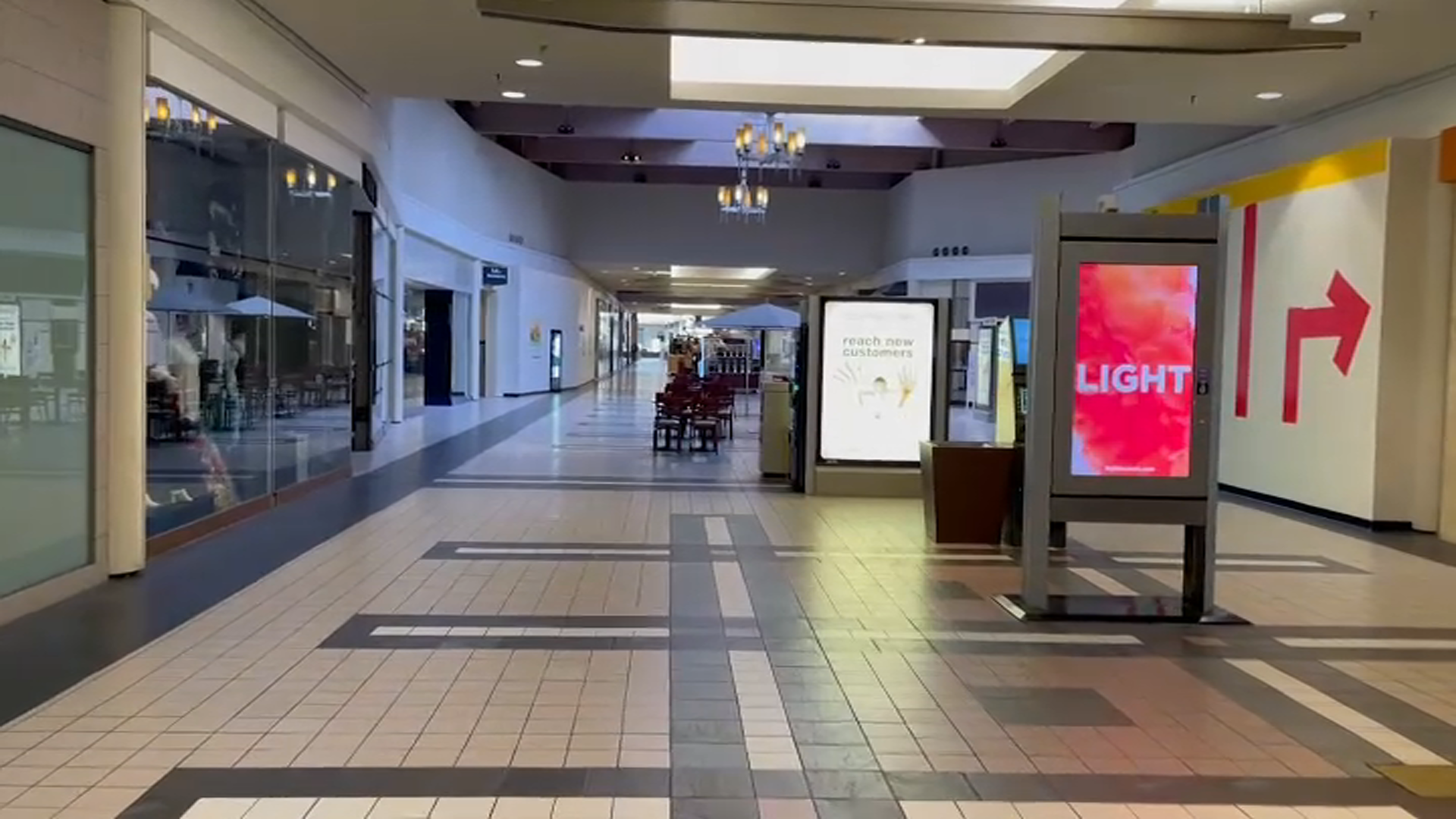As school resumes after the long Labor Day weekend, how many students will return? Changes to Chicago's travel policy could affect city classrooms.
Plus, the city's travel advisory is set for another update Tuesday.
Here's what you need to know about the coronavirus pandemic across Illinois today:
'Do Not Ever Take Medicine For Animals:' Chicago's Top Doc Warns Against Use of Ivermectin to Treat COVID
Feeling out of the loop? We'll catch you up on the Chicago news you need to know. Sign up for the weekly Chicago Catch-Up newsletter here.
As more people decide to taking ivermectin to treat or prevent COVID-19, Chicago's top doctor warned Tuesday against taking the parasite medicine typically used on horses and cattle.
"First and foremost, do not ever, please, take any medicine that is formulated for animals. It's dangerous, and it can really be a problem," said Chicago Department of Public Health Commissioner Dr. Allison Arwady.
Ivermectin is a deworming drug used in veterinary medicine, according to Arwady, and has been causing "all kinds of issues" in humans who decide to consume it, such as liver problems and nausea.
Local
According to the U.S. Food and Drug Administration, ivermectin overdose symptoms include nausea, vomiting, diarrhea, low blood pressure, allergic reactions, dizziness, problems with balance, seizures, coma and death.
Read more here.
Coronavirus by the Numbers: More Than 80 COVID Outbreaks Reported in Illinois Schools
Health officials in Illinois say that more than 80 coronavirus outbreaks have been reported at schools across the state, with several involving more than a dozen cases at educational institutions.
According to the latest figures from the Illinois Department of Public Health, 81 outbreaks are active at Illinois schools as of this weekend, including 11 in Cook County alone.
At Glenbrook Elementary School, an outbreak involving at least a dozen cases has been reported, while another outbreak at St. Mary Catholic School, located in Mokena, involves between five and 10 cases.
At least eight outbreaks have also been reported in Will County, including one involving more than five cases at Reed-Custer Elementary School.
Read more here.
Variants Stick Around While Unvaccinated Get Infected, Local Doctors Say
Unvaccinated populations across the world could be responsible for the emergence of more variants of COVID-19, according to local doctors studying the virus.
The Mu and Delta variants have made a presence in the Chicago area although Dr. Egon Ozer of Northwestern Medicine says the Delta variant accounts for most of the cases today.
“Most of the MU cases were earlier in the summer and have since been declining almost everywhere except for Columbia,” said Egon. “With current conditions, Delta is much more infectious, much more easily transmitted and so it tends to outcompete every other variant out there.”
Read more here.
WATCH: Chicago's Top Doctor on Mu Variant: It's Not Even a 'Variant of Interest' in the U.S.
Chicago Travel Advisory Update May Be Delayed Due to Holiday: Top Doc
Chicago's travel advisory was set for another update on Tuesday, one week after nearly every U.S. state was added to the list and changes to the policy were announced just before the Labor Day holiday weekend.
But it remains unclear the update will be released Tuesday or Wednesday as metrics were delayed due to the long Labor Day holiday weekend.
"Because yesterday was a holiday, all of the sort of CDC national data was actually not updated yesterday so we will be updating our travel advisory and we'll put it out, you know, either later today or possibly tomorrow," Chicago Department of Public Health Commissioner Dr. Allison Arwady said during a Facebook Live Tuesday.
Arwady noted that a "huge majority of the country still remains on the list" and "travel remains a high risk activity for people who are unvaccinated."
Read more here.
Brookfield Zoo Gives COVID Vaccine to 'High-Risk Animals'
Brookfield Zoo animals are now among the most recent recipients of the coronavirus vaccine, the Chicago Zoological Society revealed Tuesday.
According to the zoo, veterinarians have started administering a vaccine designed specifically for animals to "high-risk" species, or ones that are more susceptible to contracting the virus. The doses were donated by Michigan-based animal health company Zoetis, the zoological society, which manages Brookfield Zoo, said.
The animal version of the COVID vaccine has been authorized for experimental use by the U.S. Department of Agriculture on a case-by-case basis.
Mu Variant: A Look at Cases Reported in Illinois and What We Know So Far
The World Health Organization is monitoring a new coronavirus variant called "mu," which the agency says is now labeled a "variant of interest," and although the variant is not yet on the list being monitored by U.S. health officials, cases have been reported in Illinois.
According to outbreak.info, a Scripps Research project tracking COVID-19 genomic data such as lineages and mutations, as many as 21 cases have been identified in Illinois between the months of April and August, representing what is estimated to be less than 0.5% of cases in the state.
The group notes, however, that because its data is not a random sampling of mutations, it "does not indicate the true prevalence of the mutations but rather our best estimate now."
Federal health officials in the U.S. stressed last week that the "mu" variant is not an immediate threat to the United States.
Read more here.
Chicago Travel Advisory Set for Another Update Tuesday
Chicago's travel advisory is set for another update on Tuesday, one week after nearly every U.S. state was added to the list and changes to the policy were announced just before the Labor Day holiday weekend.
In last week's update, every U.S. state except Vermont was added to the travel advisory's "orange" category, which recommends unvaccinated travelers from such locations test negative for COVID-19 and quarantine.
States are added to the advisory's "orange list" when COVID metrics rise above the threshold of 15 cases per day per 100,000 people. Any below that mark are on the "yellow" list, with public health officials still warning against non-essential travel.
Some Unvaccinated Chicago Students Now Must Quarantine After Labor Day Travel
Unvaccinated children who traveled over the long Labor Day weekend may not be allowed back in classrooms just yet under guidance from some school districts in Chicago as the city updates its travel advisory recommendations.
Chicago Public Schools in a letter to parents last week said it would abide by new guidelines set out in the city's travel advisory, which require a seven to 10-day quarantine for unvaccinated travelers, even if they test negative for the virus upon arrival.
"Unvaccinated students who leave the state should not come to school during their self-quarantine period, which is seven days if they receive a negative test and 10 days if they do not test," the district wrote.
The requirement applies to any unvaccinated student, including those ages 11 and younger who are not yet eligible to receive the coronavirus vaccine. There is no quarantine requirement for children who are fully vaccinated, unless they develop symptoms.
A similar plan is in place for the Archdiocese of Chicago, though the district is offering students the option to test out of quarantine.
Read more here.
Did You Travel Over Labor Day Weekend? Here's What Chicago's New Travel Advisory Guidelines Recommend
If you traveled over the Labor Day holiday weekend, you might want to check Chicago's latest travel guidelines.
The city updated its travel advisory recommendations for unvaccinated travelers last week, adding additional testing guidelines for those going to or coming from higher-risk locations as well as quarantining.
According to the city, before travel, unvaccinated individuals should:
- Get tested 3-5 days prior to departure.
While traveling:
- ALL individuals regardless of vaccination status should wear a mask on planes, buses, trains, and other forms of public transportation traveling into, within, or out of the United States and while indoors at U.S. transportation hubs such as airports and stations.
- In Chicago, wear a mask in all indoor public settings, regardless of vaccination status.
- Avoid crowds, try to stay at least 6 feet/2 meters (about 2 arm lengths) from anyone who is not traveling with you, and wash your hands often or use hand sanitizer (with at least 60% alcohol).
After travel, unvaccinated individuals should:
- Get tested with a viral test 3-5 days after travel AND stay home and self-quarantine for a full 7 days.
- Even if you test negative, stay home and self-quarantine for the full 7 days.
- If your test is positive, isolate yourself to protect others from getting infected.
- If you don’t get tested, stay home and self-quarantine for 10 days after travel.
- Avoid being around people who are at increased risk for severe illness for 14 days, whether you get tested or not.
The city advised all travelers to monitor themselves for COVID-19 symptoms and isolate and get tested if they develop any after travel.
Can You Drink Alcohol After Getting the COVID Vaccine? Here's What a Doctor Says
Can you drink alcohol after getting the coronavirus vaccine?
It's a question some have been asking since the onset of the pandemic.
The answer, according to an Illinois doctor with Cook County Health, is yes, but there's a catch.
"It's a great question. The simple, short answer is yes," Dr. Mark Loafman, chair of family and community medicine for Cook County Health, told NBC Chicago in May. "There's no prohibition against drinking alcohol. It wasn't specifically studied and there's an assumption that some, you know, an average number of people in the study did use alcohol during the study, but it wasn't specifically measured."
"Excessive" alcohol consumption, however, can lead to a weakened immune system, Loafman said at the time.
"We know in general that people who have used alcohol, excessive doses of alcohol, have a weakened immune system and that makes them more susceptible to infection and may weaken their response to a vaccine," he said.
So what is considered excessive? According to Loafman, it's more than one drink a day for women and more than two drinks a day for men with "consistent use over time."
Moderna vs. Pfizer: Is One Vaccine Stronger Against Delta Variant?
With many now able to choose which COVID vaccine they receive, questions surrounding which offers better protection against the now-surging delta variant have spiked.
Several studies have been conducted to determine vaccine effectiveness, but is one vaccine actually better than the others?
According to medical experts, the three vaccines currently available in the U.S. each offer protection.
Here's a breakdown of what we know so far about each vaccine.
Proof, Testing, Religious Exemptions: What to Know About COVID Vaccine Mandates
With both Illinois and Chicago mandating COVID vaccines for certain groups, what are the requirements and what do you need to know?



